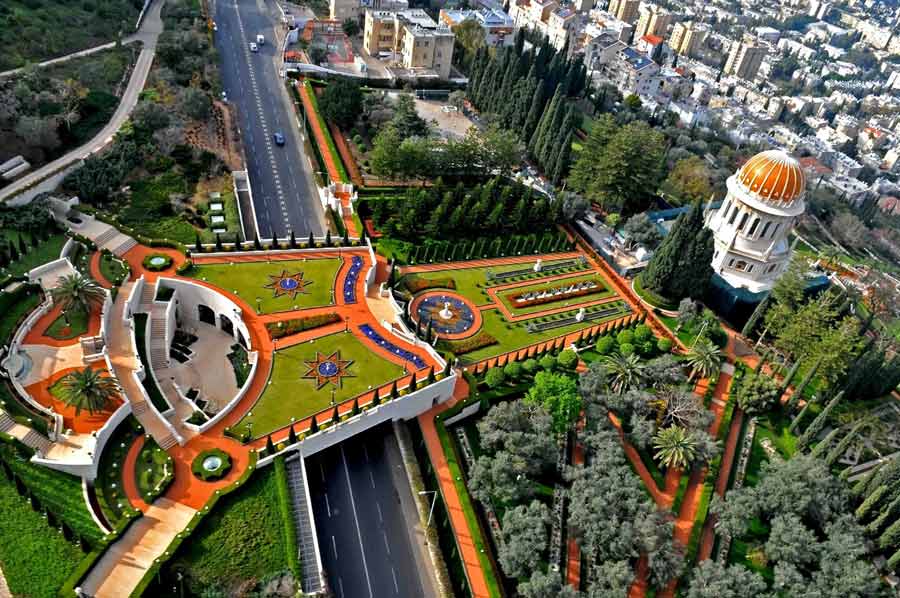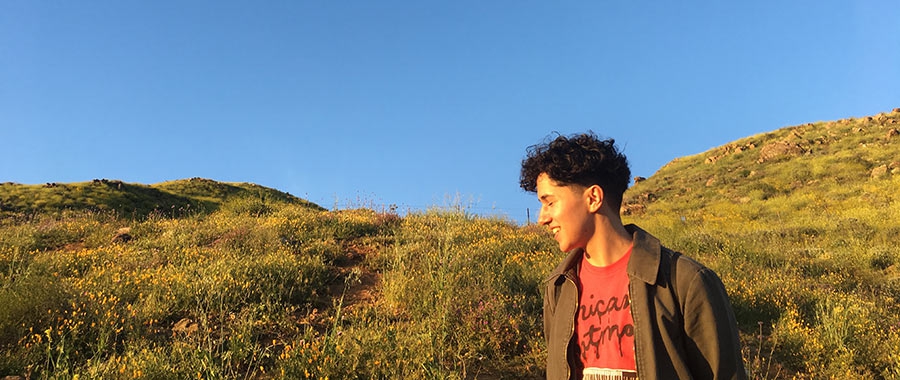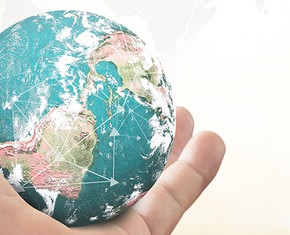The views expressed in our content reflect individual perspectives and do not represent the authoritative views of the Baha'i Faith.
At exactly this time last year, I moved to Los Angeles for a three month internship.
The fact that my stay was temporary only made it slightly less intimidating to make the move that seemingly every young creative aspires to make at some point in their journey.
About a month after I got there, I went to a beach celebration of Ayyam-i-Ha, a Baha’i festival that takes place during the intercalary days of the Baha’i calendar. There, I met someone named Sean who would soon become one of my closest friends.
We initially bonded over his sweatshirt, which represented a gender inclusive skate crew based out of New York that we shared a mutual love for. Sean had recently moved back to his L.A. home from New York, and was introduced to the Baha’i Faith during a seemingly random interaction at a coffee shop. He wasn’t a Baha’i, but was friends with a lot of the Baha’i youth in his area, which is how he ended up at this Ayyam-i-Ha celebration.
After leaving the beach that night, we went to dinner and talked for hours. For the remainder of my time interning in LA, Sean became a huge part of my support system. As someone who was born to two Baha’i parents, I’m always really interested in the perspective of people who are introduced to this religion later in life. Often when we would hang out, we would pick each other’s brains. He would ask me questions like, “Why are Baha’is so obsessed with marriage?” and “How do you all know each other?” After responding to the best of my ability, I would turn around and ask him what his thoughts were on different Baha’i laws and teachings.
Recently, Sean had the opportunity to go to Israel and Palestine for a school trip. As he was explaining to me the details of his trip, he said that on his last day, he went to the Baha’i shrines in Haifa. I was so touched that this person with an entire day in this part of the world he had never been to before, with free reign over his schedule, chose to go to the Baha’i shrines. This was so exciting for me, not just because of my Baha’i identity, but also because my grandfather was born in the city of Haifa, so it has always had an extra special place in my heart.

Baha’i World Centre in Haifa, Israel.
Sean explained to me that as he was walking around the gardens, he started conversations with the people he came across. Some of the people offered to go to lunch with him, and so he ended up eating falafel with three of the people he stumbled across in the gardens. Sean ended up eating and talking with these three strangers for a total of four hours.
As he was explaining this interaction to me, Sean shared for the first time that he was considering becoming a Baha’i. He told me he had shared this with some of our mutual friends, to which one of them responded, “you’re already a Baha’i,” and she shared with him this quote:
When asked on one occasion: “What is a Baha’i?” Abdu’l-Baha replied: “To be a Baha’i simply means to love all the world; to love humanity and try to serve it; to work for universal peace and universal brotherhood.” On another occasion He defined a Baha’i as “one endowed with all the perfections of man in activity.” In one of His London talks He said that a man may be a Baha’i even if He has never heard the name of Baha’u’llah. He added:—The man who lives the life according to the teachings of Baha’u’llah is already a Baha’i. On the other hand, a man may call himself a Baha’i for fifty years, and if he does not live the life he is not a Baha’i. An ugly man may call himself handsome, but he deceives no one, and a black man may call himself white, yet he deceives no one, not even himself. – quoted by J.E. Esselmont in Baha’u’llah and the New Era, p. 72.
This opened a part of the conversation that I can’t stop thinking about. Sean kept on placing himself as an outsider, but he is undoubtedly a part of the whole, like everyone else. He participated in community building efforts, was active in speaking out about injustice in this world and finding ways to combat it, and was kind to those he came across. Sean embodies so many qualities that I have been taught to value and strive for through my spiritual education as a Baha’i. I realized it was insignificant to me whether or not he called himself a Baha’i, because his actions spoke much more loudly than anything he could have said.
Making the distinction between a “Baha’i” and “non-Baha’i” can be disunifying, and get in the way of someone feeling like they either truly belong or don’t. Exclusion itself is intrinsically “non-Baha’i.” All are welcome.
















Comments
Sign in or create an account
Continue with Googleor